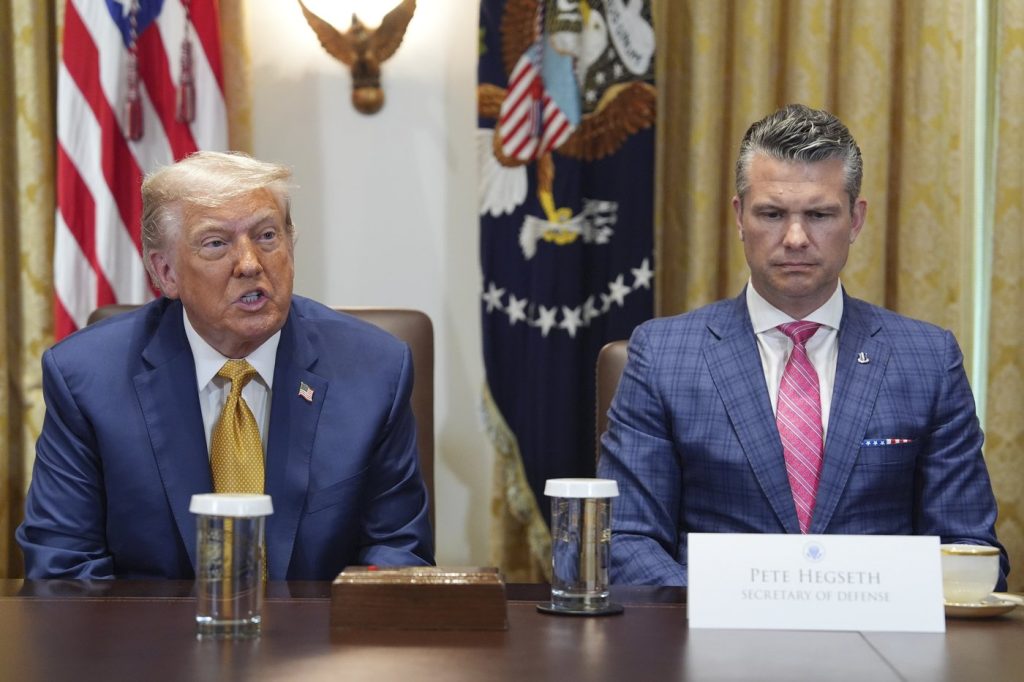WASHINGTON (AP) — The Trump administration has resumed the shipment of certain weapons to Ukraine one week after the Pentagon had ordered a pause on some deliveries, according to U.S. officials. The resumption includes supplies like 155 mm munitions and precision-guided rockets known as GMLRS, although it remains unclear exactly when the weapons began to move.
Last week, Defense Secretary Pete Hegseth initiated the pause on deliveries to allow the Pentagon an opportunity to assess its weapons stockpiles. This decision reportedly caught the White House off guard. A White House official, who spoke on the condition of anonymity, claimed that there was never really a “pause” in shipments. Instead, it was described as a review process to ensure that U.S. military support is consistent with defense strategy. The Pentagon purportedly never officially announced a pause in shipments.
Despite this, Pentagon spokesman Sean Parnell confirmed during a press briefing that he could not provide specifics regarding which weapons were paused or the timeline for shipments. He stated that decisions regarding weapon systems will ultimately be made by the President and Secretary of Defense. The pause affected a range of weapons, including Patriot missiles and GMLRS rockets, which surprised not only Ukrainian officials and allies but also U.S. lawmakers and other government departments, including the State Department.
The status of the pause specifically concerning Patriot missiles remains unclear. These munitions are highly sought after, especially following a recent ballistic missile attack launched by Iran against a U.S. air base in Qatar. President Donald Trump announced on a recent Monday that the U.S. would continue its deliveries of defensive weapons to Ukraine, although he has dodged questions regarding who mandated the pause.
During a press interaction, Trump asserted that he would have knowledge of any decision made about military aid, stating, “I will be the first to know. In fact, most likely I’d give the order, but I haven’t done that yet.” When pressed further on who specifically ordered the pause, he responded, “I don’t know. Why don’t you tell me?”
Internally, Trump has shown signs of frustration towards Pentagon officials for having announced the pause, feeling that it wasn’t adequately coordinated with the White House. The Pentagon, however, contradicted this assertion, maintaining that Hegseth acted with the intent of providing the President a framework to evaluate military aid shipments while assessing current stockpiles.
The backdrop for these developments features escalating military actions from Russia, which has begun conducting increased airstrikes on Ukraine. Recent reports indicate that the latest wave included the most extensive deployment of drones in a single night since the onset of the war in 2020. Trump has expressed growing dissatisfaction with Russian President Vladimir Putin, noting that Putin's actions are not conducive to humane treatment.
In a Cabinet meeting, Trump remarked, “Putin is not, he’s not treating human beings right,” as he addressed the necessity for sending more defensive weapons to Ukraine. The 155 mm artillery rounds in question have emerged as some of the most utilized munitions in the ongoing conflict. Each round measures approximately 2 feet long, weighs around 100 pounds, and has a diameter of 155 mm. These rounds are integral to Howitzer systems, which are recognized for their ability to strike targets from a significant distance, with ranges of 15 to 20 miles depending on the specific firing system used.
Since Russia’s invasion of Ukraine in February 2022, the U.S. has supplied over 3 million 155 mm rounds, contributing more than $67 billion in military and weapon support to Ukraine during this period.












